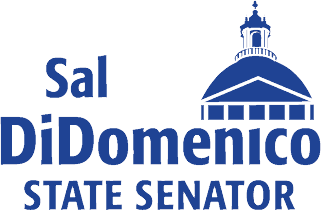Comprehensive bill also includes updates to Unemployment Insurance and Tax Relief for Businesses, Tax Filing Deadline Extension
BOSTON—Last week, Senator DiDomenico joined with his colleagues in the Massachusetts Senate in passing a comprehensive bill that would guarantee five paid days off for every employee in the Commonwealth. The bill also seeks to stabilize the state’s Unemployment Insurance (UI) trust fund, provide substantial tax relief to businesses and workers, and delay the state tax filing deadline.
“I am proud of the action taken by the Senate to pass this comprehensive bill that will help both businesses and workers, all while working towards an equitable recovery here in Massachusetts,” said Senator DiDomenico. “Although things are beginning to improve as more people are able to access the COVID-19 vaccine, it is not lost on us that our small business community and working families are still very much hurting from the fallout of this pandemic. I am confident this bill will bring much needed relief to our businesses, support to our front-line workers, and tax relief to low-income families. I know the House is also committed to taking swift action on this legislation and am grateful for their partnership on this matter. I sincerely look forward to seeing this comprehensive bill be signed into law.”
To help protect employees on the front lines, and prevent the further spread of COVID-19, this bill ensures that all workers in Massachusetts have access to paid leave if they are unable to work as a result of a COVID-19 infection or a quarantine order. Significantly, given the state’s push to increase vaccination rates, employees will be able to use this paid leave time to take time off to receive the vaccine. In addition, the legislation provides for leave if the worker needs time to care for a family member unable to work because of COVID.
Under this legislation, employees are eligible for up to five days of paid leave, at their regular rate of pay, capped at $850 per week—which is the same maximum weekly benefit provided for in the Massachusetts Paid Family Medical Leave (PFML) law. Employers covered by federal legislation providing for paid leave will have the cost of providing such leave paid for through the federal tax credit. For all other employers, the bill creates a $75 million COVID-19 Emergency Paid Sick Leave Fund to reimburse eligible employers for providing their employees with emergency paid sick leave. The state requirement for paid leave would extend until September 30, 2021 or until the fund is exhausted.
The COVID-19 public health crisis has created a surge of pandemic-related unemployment claims, which has depleted the Commonwealth’s unemployment trust fund, necessitating borrowing from the federal government to pay out those benefits. The bill therefore authorizes up to $7 billion worth of borrowing to replenish the UI trust fund and to repay all federal UI loans, funded by an employer charge, and creates a separate time-limited employer assessment to repay interest on federal UI loans by their due dates to ensure the solvency of the UI trust fund.
The bill also provides much-needed UI-related relief to businesses and employees. For businesses, the bill prevents increases in the UI rate schedule for 2021 and 2022, providing employers with needed stability and relief as the Commonwealth continues to recover. For unemployed workers, some navigating the UI system for the first time, the bill waives tax penalties on UI benefits in 2020 and 2021. It also mirrors federal tax provisions included in the recent American Rescue Plan and excludes $10,200 of unemployment compensation received by an individual with a household income of less than 200% of the federal poverty level from gross income for tax purposes, putting up to $500 into the hands of lower income unemployed individuals. This would apply to individuals making $25,760 or under, or a total income of $53,000 for a family of four.
Further relief for businesses comes in the form of a change in state tax policy regarding PPP loans. In Massachusetts, corporate excise, but not personal income tax, is tied to the current federal Internal Revenue Code. As a result, Massachusetts' tax law treats forgiven Paycheck Protection Program loans differently depending on whether the recipient small businesses is organized as a pass-through entity or a c-corp. This bill conforms to federal law and ensures that all forgiven PPP loans, advance Economic Injury Disaster Loans and payments made under the federal Small Business Debt Relief are excluded from gross income, regardless of how the business is organized.
Finally, to align state tax deadlines with federal tax deadlines, the bill extends the Commonwealth’s tax filing deadline from April 15, 2021, to May 17, 2021. This tax flexibility, similar to a delay authorized last year by the Legislature, will provide stability and ensure residents have time to prepare and file taxes as the state continues to weather the impacts of the COVID-19 pandemic.
The bill now goes to the House for further action.
###
